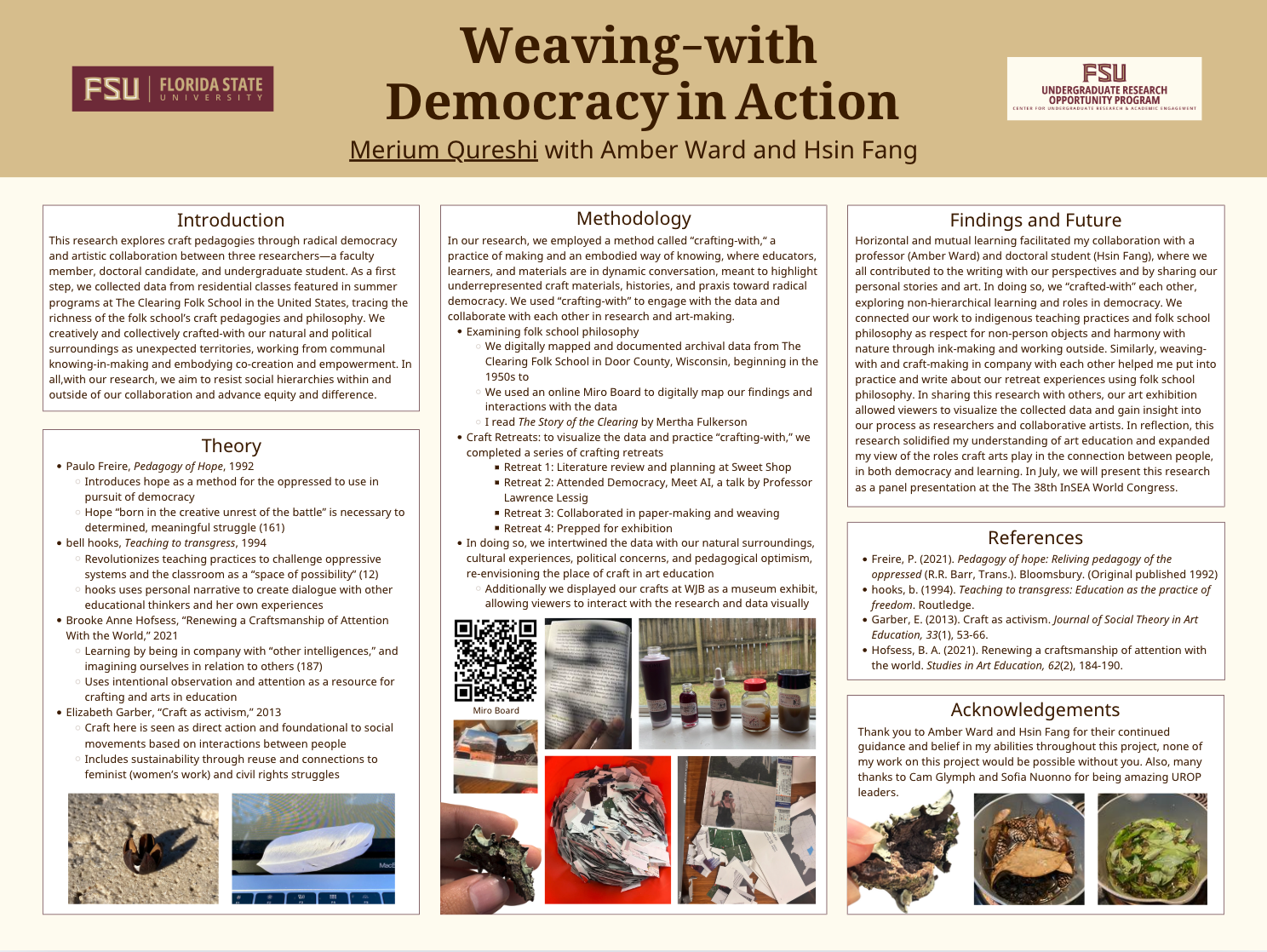Research Symposium
25th annual Undergraduate Research Symposium, April 1, 2025
Merium Qureshi Poster Session 3: 1:45 pm - 2:45 pm/ Poster #207
BIO
Merium Qureshi is a first year student at FSU majoring in Art History and Human Rights & Social Justice. Her research interests lie in art history and analysis, specifically looking at folk/indigenous art and textiles, the cottage industry, and the passage of traditional artistic practices. She is a Presidential Scholar, member of the College of Fine Arts Leadership Council, and treasurer for the Undergraduate Art History Association. In the future, Merium is considering pursuing a career either in the museum field with curation and collections work or in advocacy and law.
Weaving-with Democracy in Action
Authors: Merium Qureshi, Amber WardStudent Major: Art History and Human Rights & Social Justice
Mentor: Amber Ward
Mentor's Department: Art Education Mentor's College: Fine Arts Co-Presenters:
Abstract
This presentation introduces exploring craft pedagogies through radical democracy with collaboration and residential classes featured in summer programs from a folk school in the United States. In addition to tracing the richness of the folk school’s pedagogical emphasis on craft, we creatively and collectively craft-with our natural and political surroundings as unexpected territories. Working from a communal way of knowing-in-making and embodying co-creation and empowerment, we aim to resist social hierarchies within and outside of our collaboration and advance equity and difference.
A research methodology we are calling ‘crafting-with’ is used to foreground underrepresented craft materials, histories, and praxis toward a radical democracy. This methodology views crafting-with as both practice of making and as an embodied way of knowing, where educators, learners, and materials are in dynamic conversation. Inspired by folk school philosophy, we use a series of craft retreats to document archival data on folk school craft, beginning in the 1950s, and intertwine it with our natural surroundings, cultural experiences, political concerns, and pedagogical optimism as a way to re-envision the place of craft in art education.
An additional unexpected territory materializing from this research is one of horizontal mentorship whereby we work to mentor each other all while acknowledging the various power differentials that accompany our given identities, while navigating the discomfort of a new collaboration with fluid, unpredictable responsibilities and goals.
In sum, this research interweaves data, pedagogy, culture, gender, and political engagement to animate art education toward a more collaborative and democratic future through craft.
Keywords: folk school pedagogy, democracy, art education


